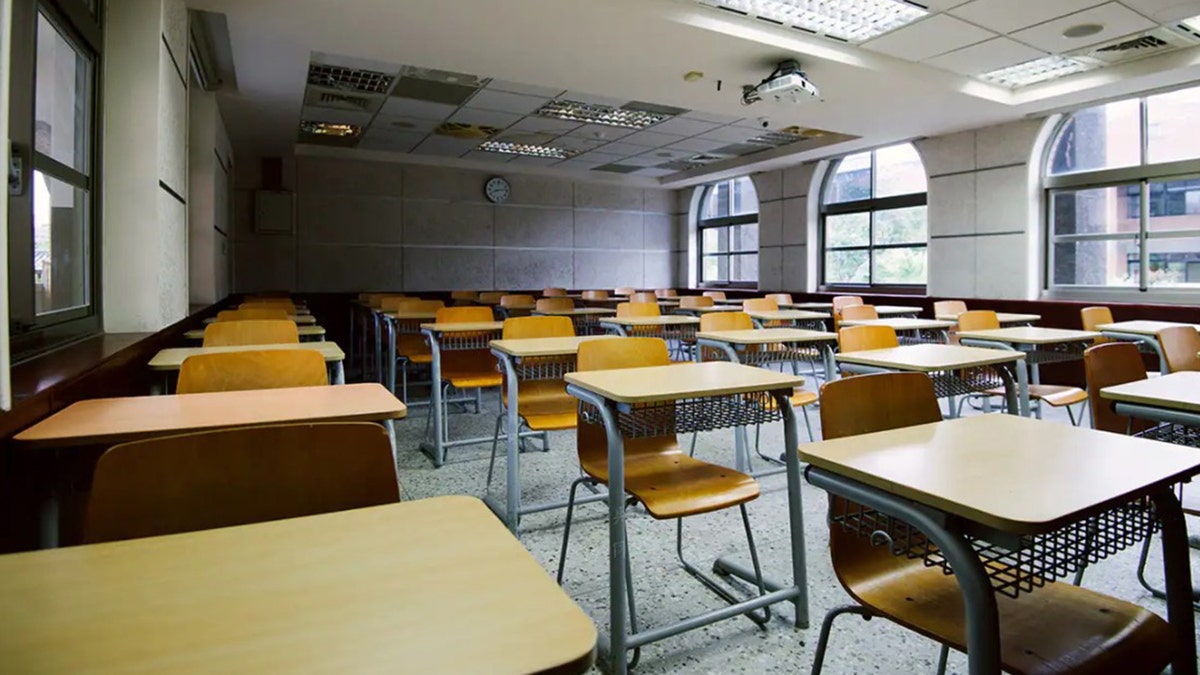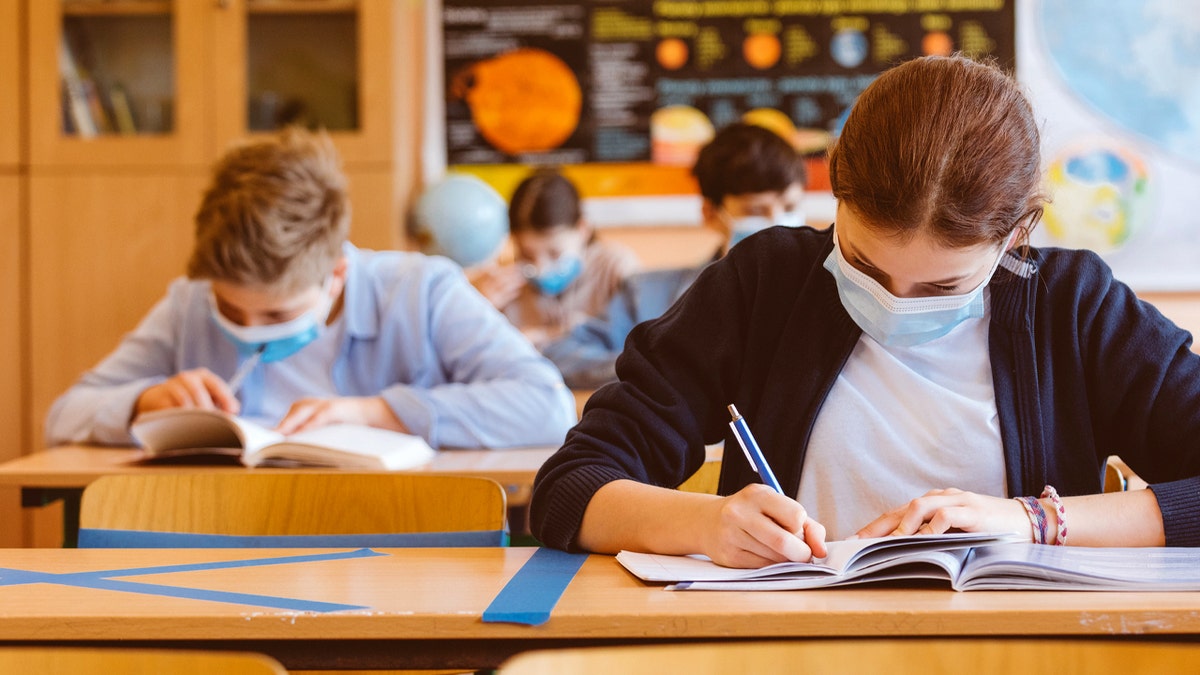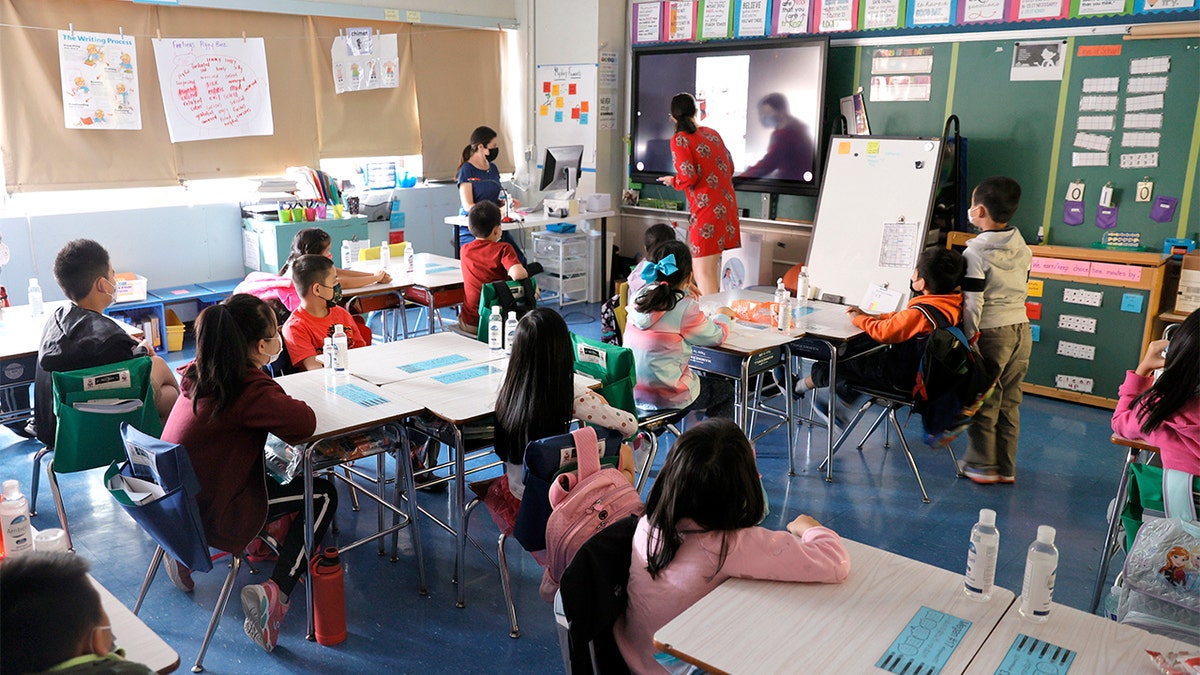Mollie Hemingway talks developmental delays, 'extreme emotional problems' from school closures
The Fox News contributor says it's 'really just horrific' what COVID-19 school closures have put young people through
With this month marking two years since the COVID-19 pandemic upended life around the world, parents and activists alike hope students can catch up following the inconsistent schooling that's marked the period.
School districts nationwide mandated at-home learning as the pandemic ebbed and flowed the past two years. While school officials touted the closures as necessary to help prevent the spread of the virus, test scores across the country showed part of the impact at-home learning had on young students. McKinsey & Company research examined the effects of COVID-19 on the 2020-21 school year and found that students were on average five months behind on math and four months behind in reading. For schools with largely minority populations, students fell six months behind in math and five to six months behind in reading.
The closures have also exacerbated a mental health crisis among young people often forced to isolate from their peers, experts have agreed.
Asked whether children can catch up after two years of developmental and social delay, Fox News contributor Mollie Hemingway said, "It depends."

(iStock)
"I think it actually kind of depends on the age of the child," Hemingway told Fox News Digital at the 2022 Conservative Political Action Conference. "For instance, if you're learning phonetics at a young age, it's actually important that you be able to see the teacher articulate different vowels, sounds, and words that you can learn. And if you don't … that window is closed and there's no way to get it back."
Hemingway shared her hope that kids can overcome the compounded emotional struggles, but said that what happened to young people in this pandemic was "really just horrific." She took aim at the decision makers, whom she accused of being "protected" from the consequences.
"You hope that, even with the delays we're seeing, the older children, some of the extreme emotional problems, that there will be a way through that," Hemingway said. "But, that's why it's really just horrific what we've put young people through, and all these … I think a lot of the people that are making the decisions are protected from it. They were wealthy enough, or cloistered enough that they didn't feel the ramifications. And particularly when we're talking about poor children who don't have resources at home, it just breaks my heart to think about what we put them through."

Masked students at school. (iStock)
HARVARD PROFESSOR: MORE SCHOOL CLOSURES COULD EXACERBATE ‘FULL-ON CHILD MENTAL HEALTH CRISIS’
Moms for Liberty spokeswoman Quisha King expressed hope that children can play catch-up, but suggested it may need to be in a setting outside the typical classroom.
"I believe students will be able to catch up," she told Fox News Digital. "However, I don’t know if they’ll be able to do it in the typical public school setting. There are so many kids who are behind and only so many teachers."
King said she pulled her oldest daughter out of public school and put her into a home school co-op, after which, King said, she made "incredible leaps and is almost caught up in two months." The mom chalked it up to a better learning environment.
"I believe this is due to a very small classroom and a teacher that can give her the attention needed," King said. "Unfortunately, most kids in public schools aren’t able to get that level of attention. Parents may need to step in to provide the extra academic rigor and maybe some students will need summer school. It’s going to be tough but parents knowing where their child stands academically and having goals to get them caught up will make all the difference."

NEW YORK, NEW YORK - SEPTEMBER 27: (L-R) Co-teachers at Yung Wing School P.S. 124 Marisa Wiezel (who is related to the photographer) and Caitlin Kenny give a lesson to their masked students in their classroom on September 27, 2021 in New York City. (Photo by Michael Loccisano/Getty Images) (Photo by Michael Loccisano/Getty Images)
Corey DeAngelis, National Director of Research at the American Federation for Children, also identified the current school climate as the culprit behind so many issues among students and said it was a prime opportunity to promote school choice.
"Opening schools in person is an extremely low bar when it comes to empowering parents and providing children with an adequate education," he said. "Sending a child back to a failing government-run school that wasn't meeting their needs to begin with is unlikely to fix much of anything. The only real solution is to fund students directly and empower families to choose the education providers that best meet their needs. School choice is the only way to truly secure parental rights in education – and it would provide meaningful bottom-up accountability because families could vote with their feet. Only then will schools have real incentives to cater to the needs of families as opposed to the other way around."
"I think it's going to be very difficult, especially for children that have speech issues and other learning disabilities," Fight for Schools Executive Director Ian Prior said of the road to recovery. "Recovery from learning loss should have been the number one issue for school administrators, school boards, state and federal departments of education, and unions, but instead they spent the past two years focused on mask mandates, vaccine mandates for student athletes, and race consciousness and gender identity for elementary schoolers."
There continues to be fierce debate over whether mask mandates have helped or have made school unnecessarily uncomfortable for some children. Conservative commentator Bethany Mandel argued that the masking could exacerbate any disabilities a child might have, as well as any sensory sensitivities.
"The outcry about it was really representative of the fact that so many people who are promoting masking of very young children have never actually met a young child," Mandel told Fox News Digital at CPAC.
The battle over how the shuttering of schools and masking have affected kids' mental health has engendered rare bipartisan agreement. A group of politically diverse parents recently shared their children's unfortunate stories on "Face the Nation." One Republican mom said that her daughter cried when learning she would again have to wear a mask in class, and a dad who identified as a Democrat said that the school closings resulted in a "nasty mental health crisis."
"My middle child is going to college and they, at colleges, they really have a nasty mental health crisis – it's not made up," the father said. "And the COVID restrictions have a lot to do with that. It's masking. The social distancing. The asking for, having to get tested twice a week … It's really been taxing, and it's really affecting their social lives. It's driving some of them pretty crazy, I guess."
CLICK HERE TO GET THE FOX NEWS APP
Academics have argued the same. In a guest essay for the New York Times in December, Joseph G. Allen, an associate professor and director of the Healthy Buildings program at Harvard T.H. Chan School of Public Health, said the adverse effects on kids could last for some time.
"We have a full-on child mental health crisis on our hands," he wrote. "The proportion of pediatric hospital visits for mental health reasons increased significantly in 2020 as the pandemic hit and schools closed, and the trend only worsened as 2020 wore on."





















